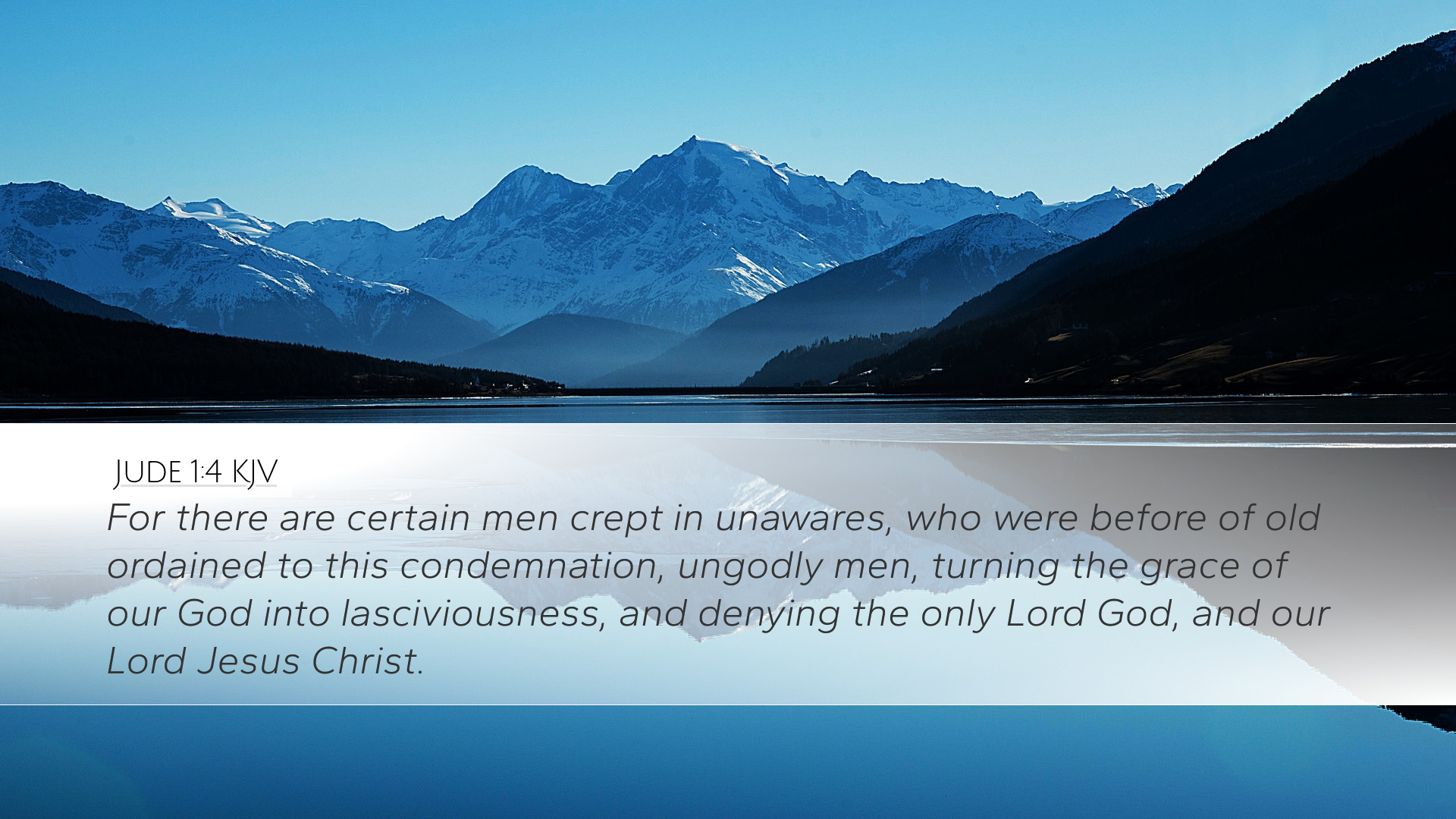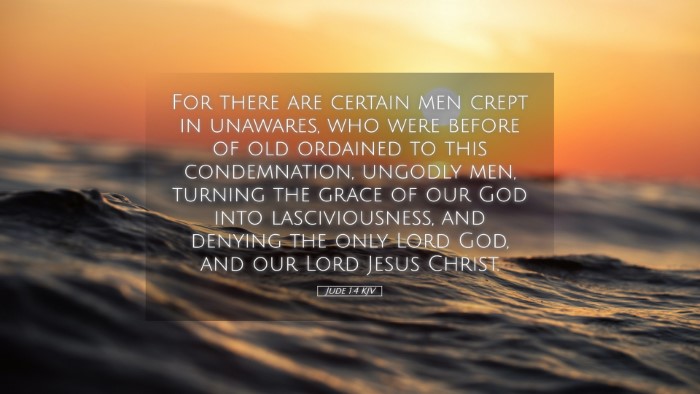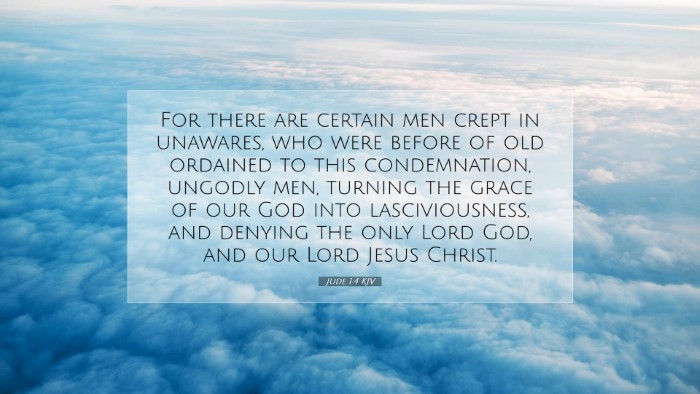Commentary on Jude 1:4
The verse Jude 1:4 states: "For certain men have crept in unawares, who were before of old ordained to this condemnation, ungodly men, turning the grace of our God into lasciviousness, and denying the only Lord God, and our Lord Jesus Christ."
Introduction
This short epistle attributed to Jude serves as a poignant warning against false teachers infiltrating the church. Jude identifies the nature of these individuals and the significant dangers they pose to the faith community. Such discussions are critical for pastors, students, and theologians as they provide cautionary insight into the preservation of doctrinal purity.
Historical Context
The letter of Jude is believed to have been written in the first century, a time when the early church faced numerous challenges from within and outside its ranks. The specific heresies Jude addresses appear to involve a distortion of the grace of God, leading believers to see grace as a license for immoral behavior. Understanding this historical context can help modern readers apply its implications appropriately.
Analysis of Key Phrases
Certain Men Have Crept in Unawares
This phrase highlights the stealthy and insidious nature of these false teachers. According to Matthew Henry, their entry into the church is likened to a subtle invasion, where their intent is covert. This emphasizes the necessity for vigilance among the congregation.
Before of Old Ordained to This Condemnation
The idea of being "ordained" brings a theological depth to Jude’s warning. Albert Barnes notes that while these men have been foretold as destined for judgment, their actions contribute to their own doom. There is a foreordained quality to their wickedness, yet responsibility remains with them for their choices.
Ungodly Men
Characterizing these individuals as "ungodly" implies a moral and spiritual deficiency. Adam Clarke elaborates that ungodliness manifests in actions contrary to God’s will, which inevitably leads to spiritual ruin and destruction.
Turning the Grace of Our God into Lasciviousness
This phrase indicates a grievous misuse of divine grace. Matthew Henry warns that the perversion of grace into a license for sin is a deceitful tactic of false teachers. Such behavior not only undermines the gospel but also results in a rejection of God's moral standards.
Denying the Only Lord God and Our Lord Jesus Christ
In denying the sovereignty of God and the lordship of Christ, these false teachers elevate human desires above divine authority. Albert Barnes emphasizes that this denial encompasses both an intellectual and practical repudiation of Christ’s role as Savior and Lord, which leads to spiritual chaos.
Theological Implications
The themes found in Jude 1:4 resonate deeply within the wider theological framework of the New Testament. The juxtaposition of grace and licentiousness compels believers to contemplate the transformative nature of genuine faith. Adam Clarke reflects on the necessity for a faith that produces good works as evidence of salvation, rather than a distorted belief that indulges sin.
Applications for the Church Today
For contemporary pastors and scholars, this passage offers essential insights into the nature of false teaching in the church. The subtlety of these influences requires robust theological education and vigilance among church members.
- Strengthen Doctrinal Teaching: Ensure that biblical teachings remain central to church gatherings, educating members about doctrine to recognize falsehood.
- Encourage Accountability: Foster an environment where church members can hold one another accountable for their spiritual health and adherence to scriptural principles.
- Promote Discernment: Equip believers with the tools to discern truth from error by encouraging personal study of Scripture and prayer.
- Embrace Grace with Responsibility: Teach the appropriate understanding of grace, guiding congregants to experience liberty in Christ while fulfilling their call to holiness.
Conclusion
Jude 1:4 serves as a sobering reminder for the church regarding vigilance against false teachings. The insights from public domain commentaries provide a rich tapestry of understanding, helping readers explore the complexities of grace and ungodliness. As the church navigates modern challenges, the lessons embedded in this brief epistle will remain relevant in fostering personal holiness and doctrinal fidelity.


